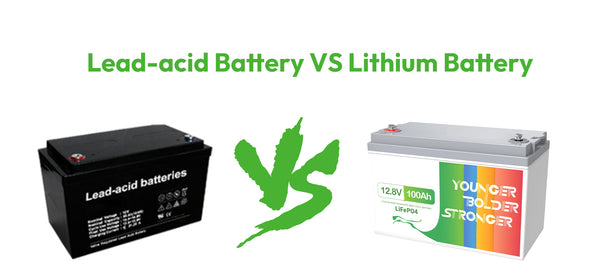Do LiFePO4 Batteries Last Longer?
LiFePO4 (Lithium Iron Phosphate) batteries have gained attention for their durability and longevity. In this comprehensive guide, we will delve into the factors influencing the lifespan of LiFePO4 batteries, compare their longevity to other battery types, and provide insights into maximizing their performance and durability.
Exploring the Longevity of LiFePO4 Batteries
Yes, LiFePO4 (Lithium Iron Phosphate) batteries are known for their longer lifespan compared to traditional lead-acid batteries. Lifepo4 lithium batteries can typically last for thousands of charge-discharge cycles, often exceeding 2000 cycles, while lead-acid batteries usually have a lifespan of a few hundred cycles. This extended lifespan makes LiFePO4 batteries a popular choice for applications requiring deep cycle capabilities and long-term reliability, such as solar energy storage, electric vehicles, and off-grid power systems.
The longevity of li iron phosphate batteries is attributed to their stable chemistry, which reduces the risk of degradation over time. Additionally, they are less prone to issues like sulfation and corrosion, which can affect the lifespan of lead-acid batteries. While LiFePO4 lithium batteries may have a higher upfront cost, their durability and long-term performance often make them a cost-effective choice in the long run.

Factors Affecting Lifespan
- Cycle Life: li iron phosphate batteries are known for their high cycle life, often rated for thousands of charge-discharge cycles, which contributes to their extended lifespan.
- Operating Conditions: Proper usage and maintenance, including avoiding overcharging and deep discharges, can significantly impact the longevity of LiFePO4 lithium batteries.
- Temperature Management: Maintaining the batteries within optimal temperature ranges can enhance their lifespan and performance.
Comparison to Other Battery Types
LiFePO4 batteries are known for their extended lifespan compared to traditional lead-acid batteries and some other lithium-ion chemistries. Their robust cycle life and resistance to degradation make them a favorable choice for applications requiring long-term reliability.

Maximizing LiFePO4 Battery Performance
- **Proper Charging:** Adhering to recommended charging parameters and utilizing compatible chargers can preserve the health and longevity of LiFePO4 batteries.
- **Avoiding Deep Discharges:** Minimizing deep discharges and maintaining adequate state of charge can help prolong the lifespan of LiFePO4 batteries.
- **Temperature Control:** Preventing exposure to extreme temperatures and ensuring proper ventilation during operation can contribute to sustained battery performance.
Application-Specific Considerations
The longevity of lithium iron phosphate battery lifepo4 can vary based on the specific application and usage patterns. Understanding the demands of the intended application and tailoring maintenance practices accordingly can optimize the lifespan of LiFePO4 batteries.
In conclusion, LiFePO4 batteries are renowned for their extended lifespan, attributed to factors such as high cycle life and robust performance in various operating conditions. When compared to other battery types, LiFePO4 batteries often exhibit superior longevity, making them a preferred choice for long-term energy storage needs. By adhering to proper usage, maintenance, and application-specific considerations, users can maximize the performance and durability of lithium iron phosphate battery lifepo4, ensuring reliable power supply over an extended period. For expert guidance on utilizing and maintaining LiFePO4 batteries, consulting with experienced professionals in the field of energy storage is recommended.
























